Whether you’re a seasoned angler or a newcomer to this exhilarating sport, I hope these top ten tips for saltwater fly fishing will help maximize your chances of success and enjoyment.
Saltwater fly fishing presents an exciting and challenging experience for anglers, as it combines the thrill of fly fishing with the diversity and power of a multitude of species. Most saltwater species are going to fight much harder than anything you have encountered in the fresh. For example, a salmon or trout at full speed will swim and five to six miles per hour whereas a bonefish on a flat could be doing 30mph and strip 150 yards of line off your reel in the first run. It is also a highly visual form of fishing and you are normally targeting individual fish.
Here are my top ten tips for fly fishing in saltwater:
1. Basic Understanding of Tides
Saltwater ecosystems are heavily influenced by tides. You don’t have to be an expert, but a basic understanding of moon phases and tidal flows is key as this determines where you will find the fish and when. Study tide charts for your fishing location to determine the best times to fish. In general, fish tend to be more active during tidal changes, so plan your trips accordingly. On salt flats, fish are often waiting for the tide to rise enough for them to access these flats for a feast of prey species, so the incoming tide is often the most productive.
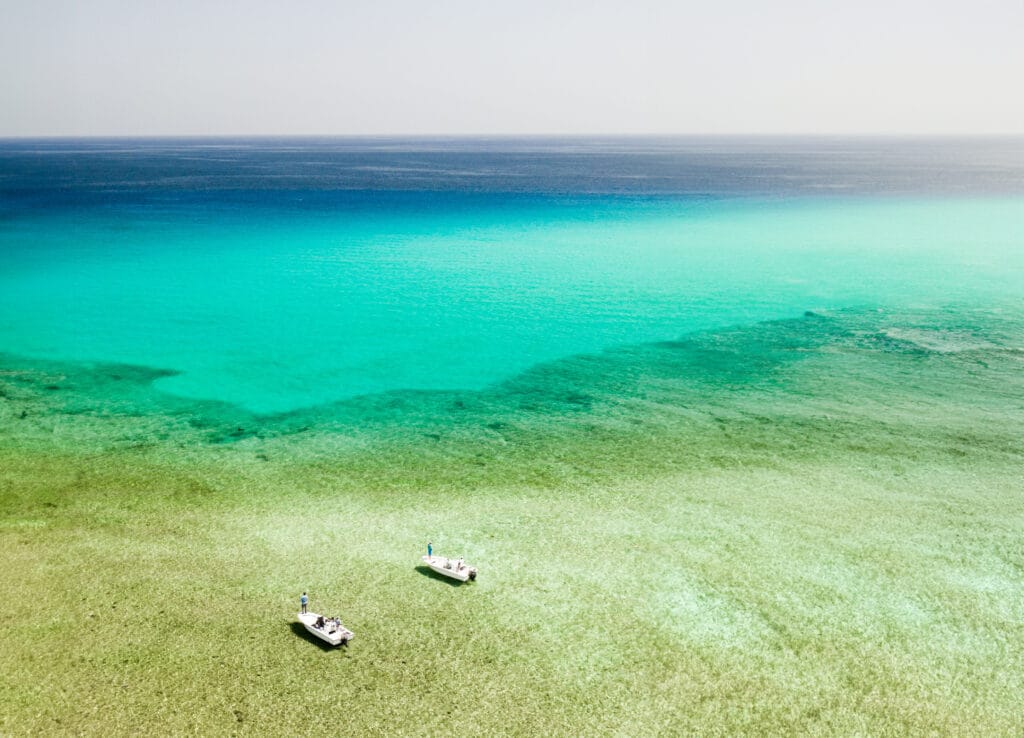
2. Target the Right Species
Research the species you intend to target and tailor your tackle, fly selection, and techniques accordingly. Common saltwater species on the international menu include bonefish, tarpon, permit, redfish, and snook, each requiring different techniques and different tackle selection. You often never know what is going to swim around the corner, so you need to be prepared.
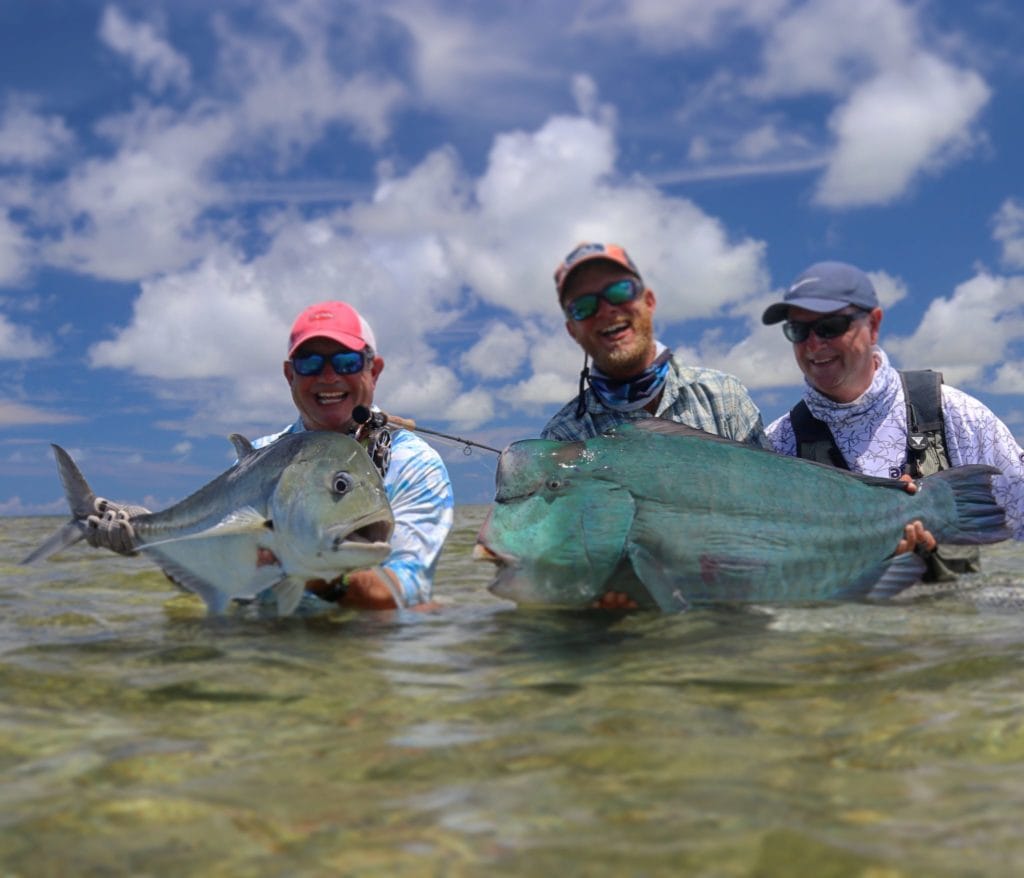
3. Practice Your Casting
Saltwater fly fishing often requires longer casts, and precision and speed are key. The difference between success and failure is often about making the most of the opportunity in front of you. Spend time practising your casting skills, including shooting line, double hauling, and casting in windy conditions. I would also say it is a necessity to master the skill of back hand casting which can be the difference between success and failure or a hook in the back of the head!
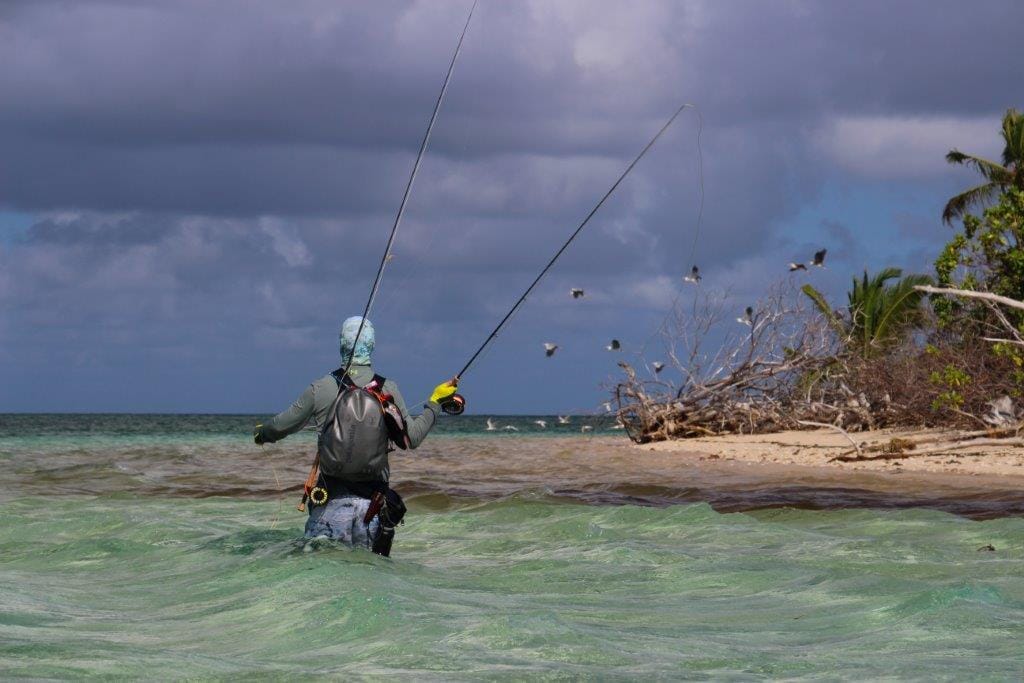
4. Match the Hatch
Just as in freshwater fly fishing, understanding the local baitfish and invertebrates that your target species feed on is crucial. Match your fly patterns to mimic these prey items to induce takes. Most saltwater species either eat crustaceans, bait fish or both. Fishing a small shrimp pattern on the flats is visually exciting as you watch the story unfold in front of you.
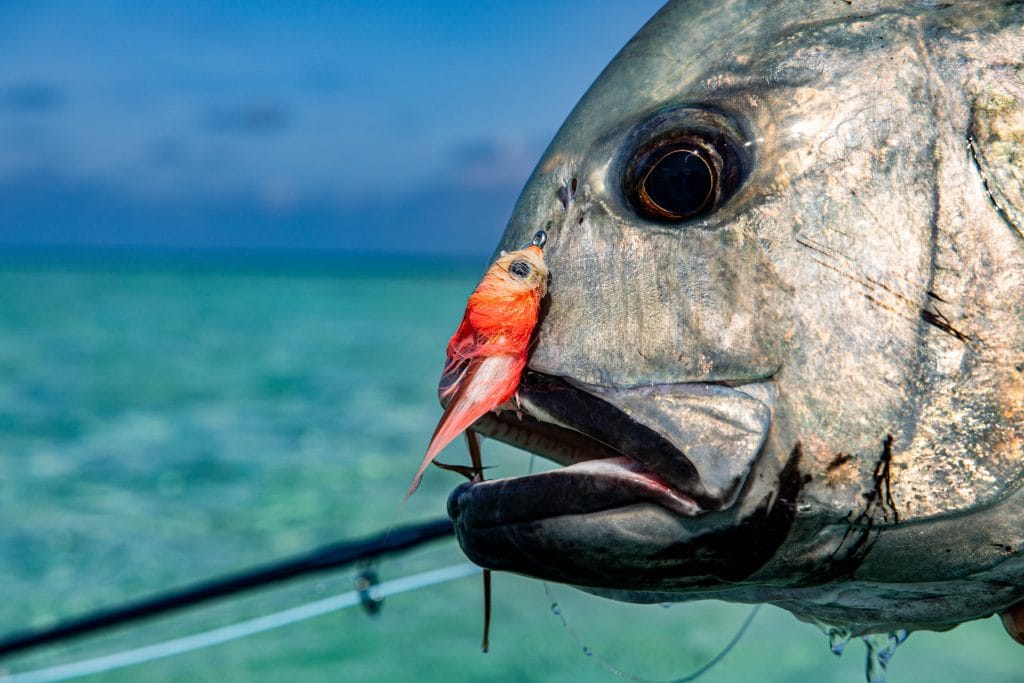
5. Use Saltwater Specific Tackle
Invest in quality saltwater fly fishing tackle that can withstand the harsh conditions of the sea. Saltwater fly rods, reels, lines, and leaders are designed to resist corrosion and handle the power of saltwater fish. Freshwater equipment will not work and fly lines, especially in hot climes will turn to spaghetti due to the heat. Saltwater lines also have profiles to cast the largest flies required more easily and faster.
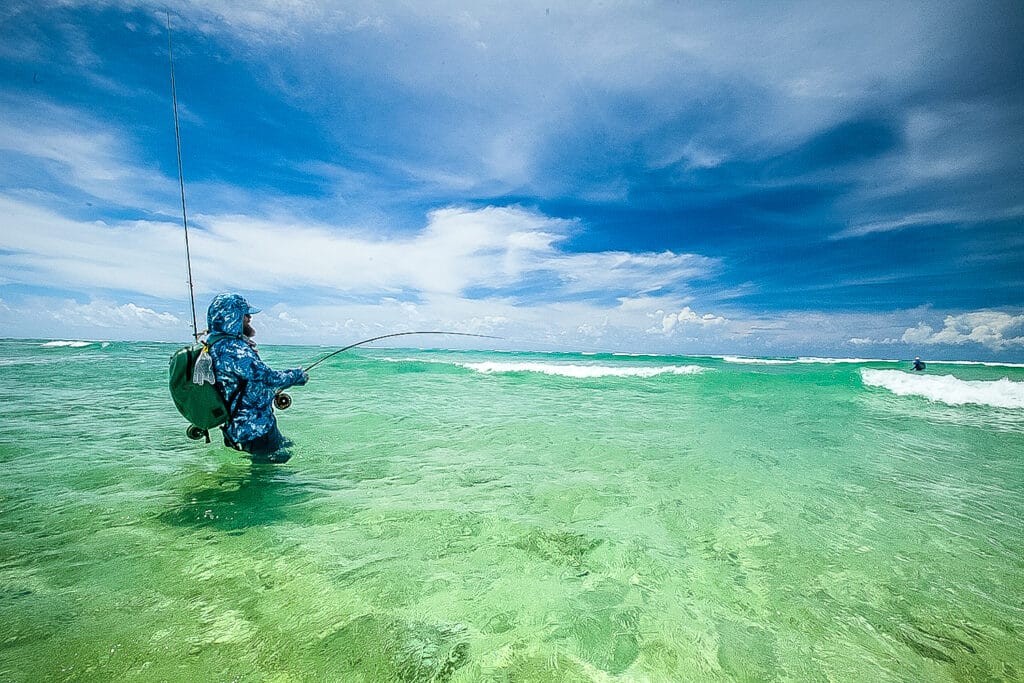
6. Master the Strip-Set
Unlike the traditional trout strike used in freshwater fly fishing, saltwater fly anglers use a strip set which can take some time to get used to. When you feel a fish take the fly, strip the line with your stripping hand to set the hook firmly. Trout striking will often result in you pulling the fly out of the mouth of the fish and harsh words from your guide.
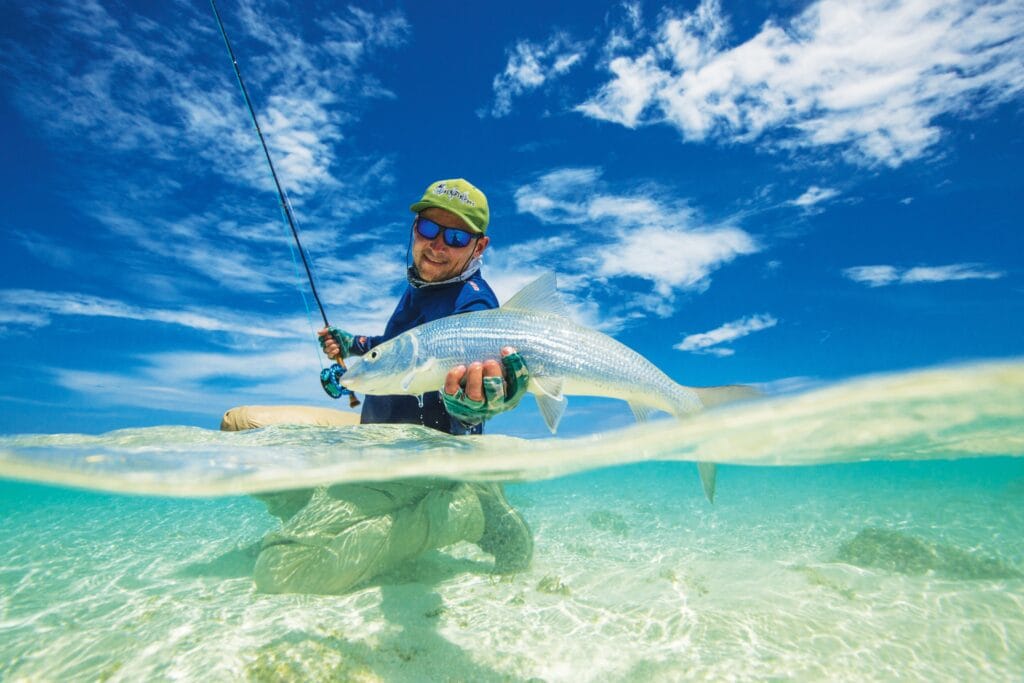
7. Stay Stealthy
Saltwater fish can be skittish, so approach the flats or the shoreline quietly and with care. Wear appropriate clothing to blend into the surroundings and make accurate casts to avoid spooking the fish. Make your first cast your best, as slapping the line up and down to gain distance will result in disappointment. Walk carefully, and wade gently to create as little disturbance as possible.
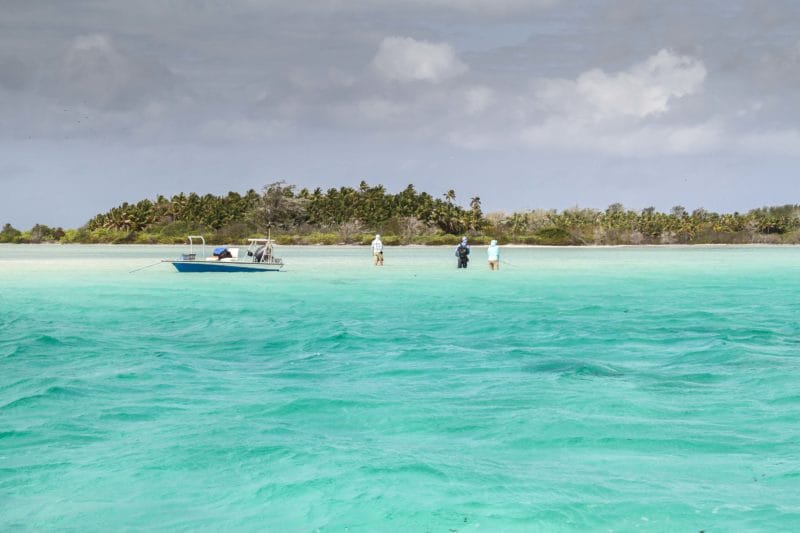
8. Manage Line and Tangle Issues
Saltwater environments can be more challenging for fly lines. Regularly clean and lubricate your fly line, and learn to deal with tangles quickly, as they can cost you precious moments when a fish is on the line. As saltwater lines are stiffer, a good stretch as soon as they come off the reel with help hugely. Make sure all backing has been put on very tight with a line winder to prevent it cutting into itself. It is often windy on a flats skiff so line management is key. It takes a little while to be aware of what your line is doing and head off errors before they happen, such as having the line wrapped around the back of the reel seat or obvious snags sticking out of your person. When a fish takes off keep tension smoothly as it takes in the slack before it hits the reel.
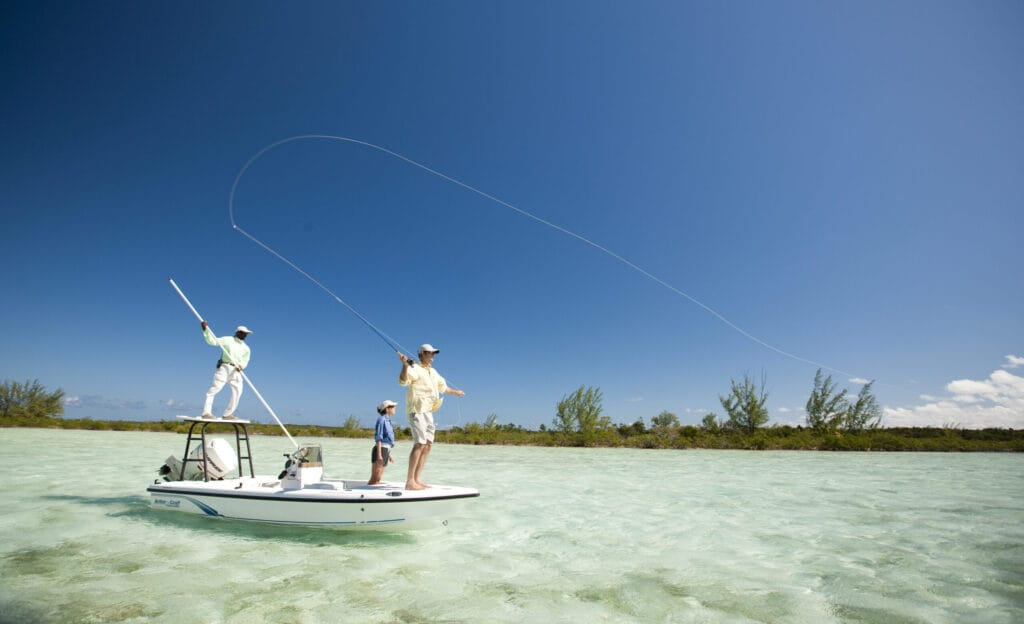
9. Respect the Fish
Handle all fish with care, ensuring their safe release after landing. Saltwater species often travel long distances to spawn and are essential to the ecosystem, so prioritize their well-being.
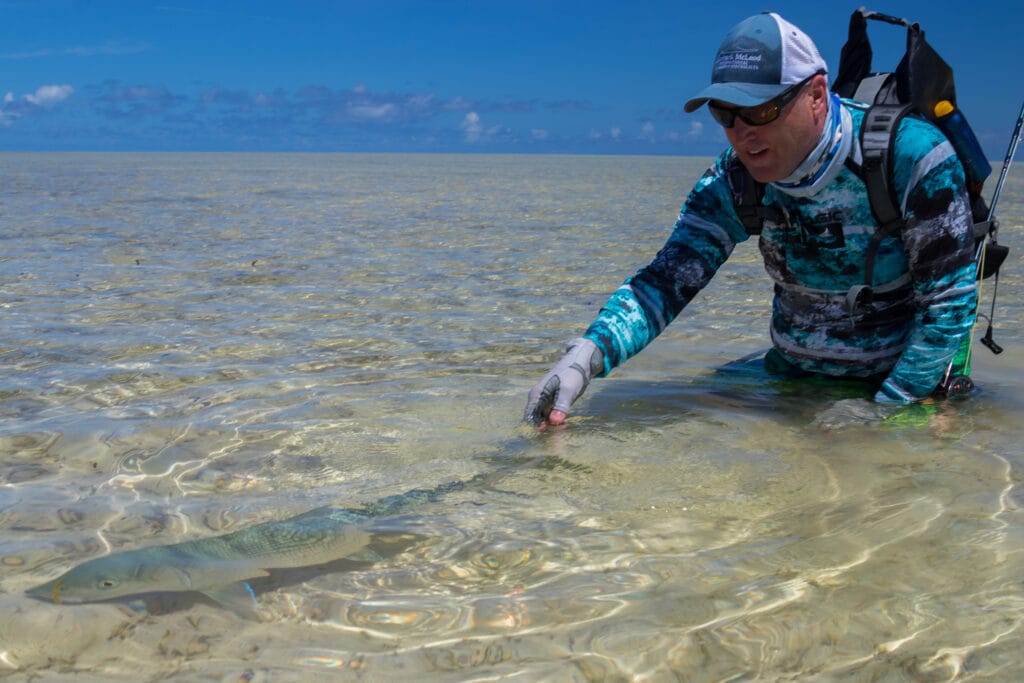
10. Safety First
Finally, prioritize safety. Sun protection, hydration, and awareness of local wildlife and weather conditions are vital for a successful and enjoyable saltwater fly fishing experience. If you are fishing by yourself, always let someone know your fishing plans and expected return time.
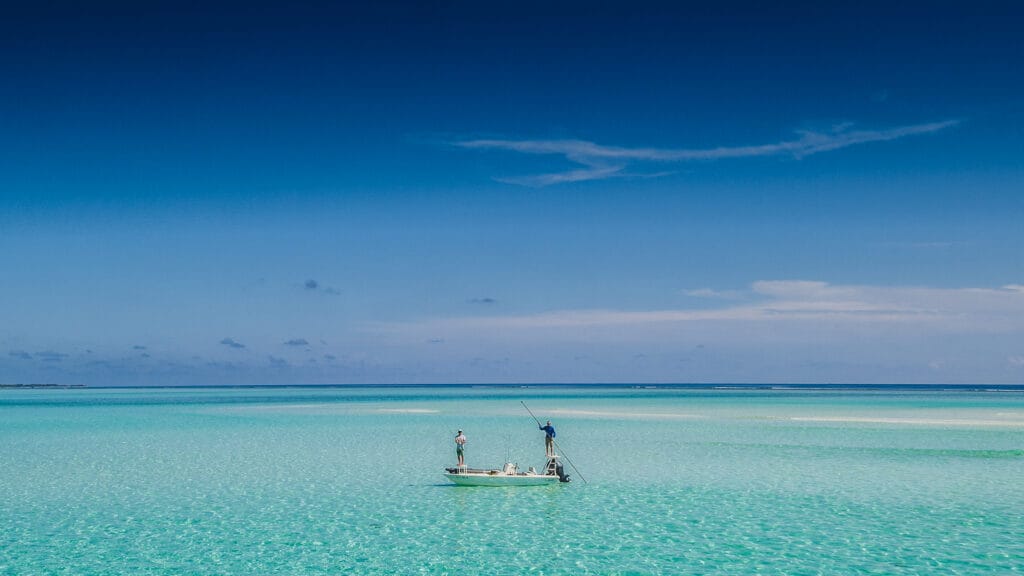
Saltwater fly fishing can be a challenging but highly rewarding pursuit. These ten tips will not only increase your chances of success but also contribute to a memorable and responsible fishing experience. Remember to stay patient, adapt to changing conditions, and cherish the moments spent on the water. Nothing will prepare you for the adrenaline rush of hooking into your first saltwater species on a fly rod.
If you’ve found the top ten tips interesting then take a look at our video which highlights the top ten reasons to fly fish in saltwater.
If this might be the year that you step into the salt then please contact Peter McLeod or Alex Jardine or call our office on +44(0)1980 847389.
About the author: Peter McLeod
